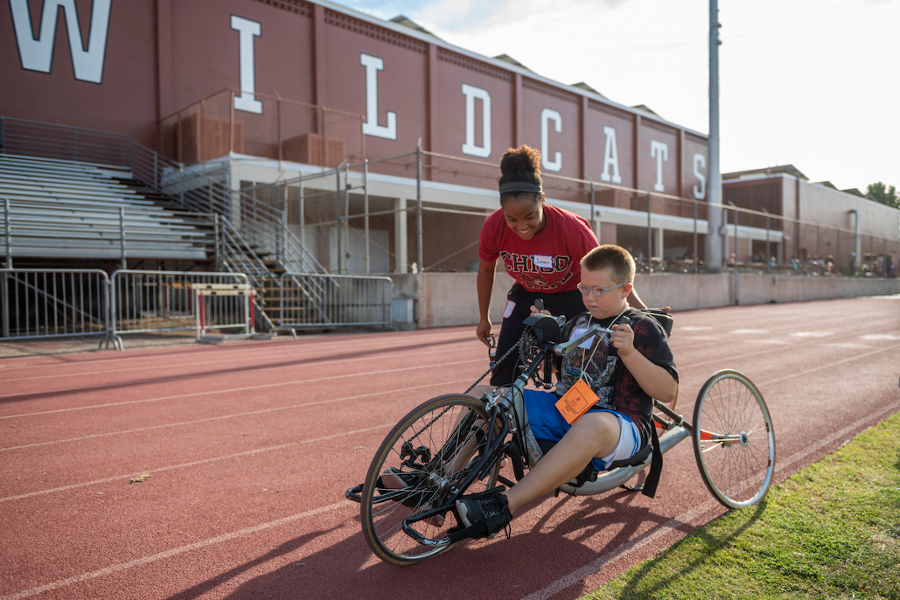Newly Funded Adapted Physical Education Grant

The Accessing Developmentally Appropriate Physical Activity Training and Education in Disability (ADAPTED) grant is designed to train 30 adapted physical education (APE) scholars in evidence-based practices to teach preK-12 children with disabilities.
Through Chico State’s Kinesiology program, the four-semester grant project will result in APE scholars earning a master's degree and credentials in their field and will help address statewide and national teacher shortages. Scholars will meet all national and state required competencies as well as collaborative project competencies in differentiated instruction, collaboration, PBIS (positive behavioral supports), high expectation IEPs, assistive technology, transition planning, English language learners, and cultural competence.
The project will include shared assignments throughout, and monthly seminars in semesters 1, 2 and 3, and shared field experiences semesters 1-3. During semester four, scholars complete their program of study with portfolio reviews. Study topic examples are working with families, assistive technology, behavior planning, cultural competence, differentiated instruction, and transition planning. Scholars will focus on individuals with disabilities with high intensity needs in settings ranging from PreK through transition to college/work.
Grant outcomes will include the following:
- Recruit and train 30 APE scholars, including a focused recruitment on under-represented groups, to serve students with disabilities who have high intensity needs.
- Implement evidence-based practices in practicum settings for APE personnel to work collaboratively with children with disabilities who have high intensity needs, including appropriate use of technology.
- Prepare APE scholars to co-teach and work collaboratively to provide embedded instruction for children with high intensity needs with diverse cultural and linguistic backgrounds in high poverty and low performing schools.
- Enhance existing support networks to ensure scholars’ retention and success in the preparation program as well as in their respective professions for at least two years.
- Provide pre-service training experiences that require and support collaboration with families, specifically families who are English language learners from high poverty rural areas.
